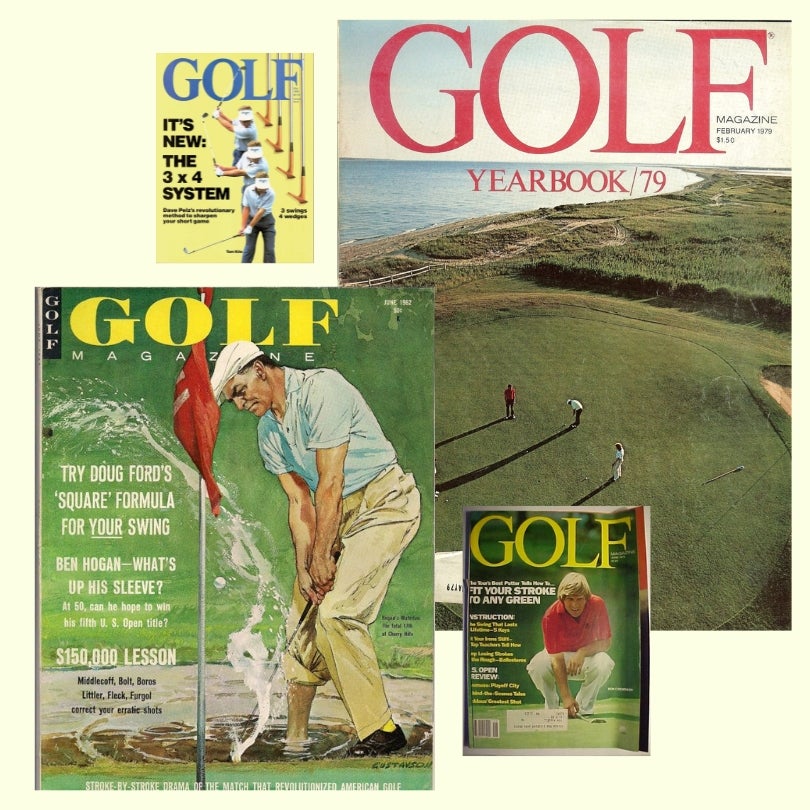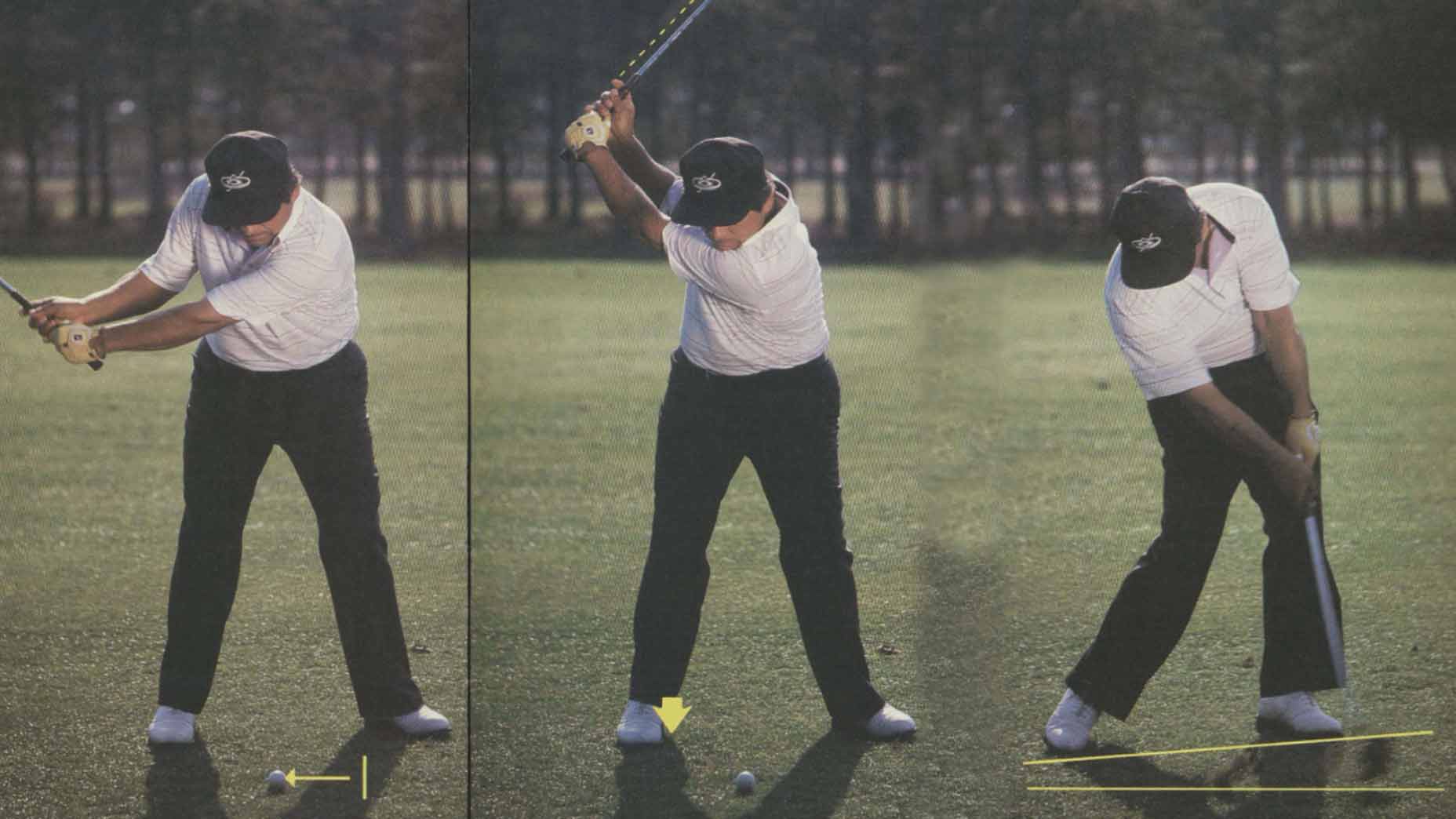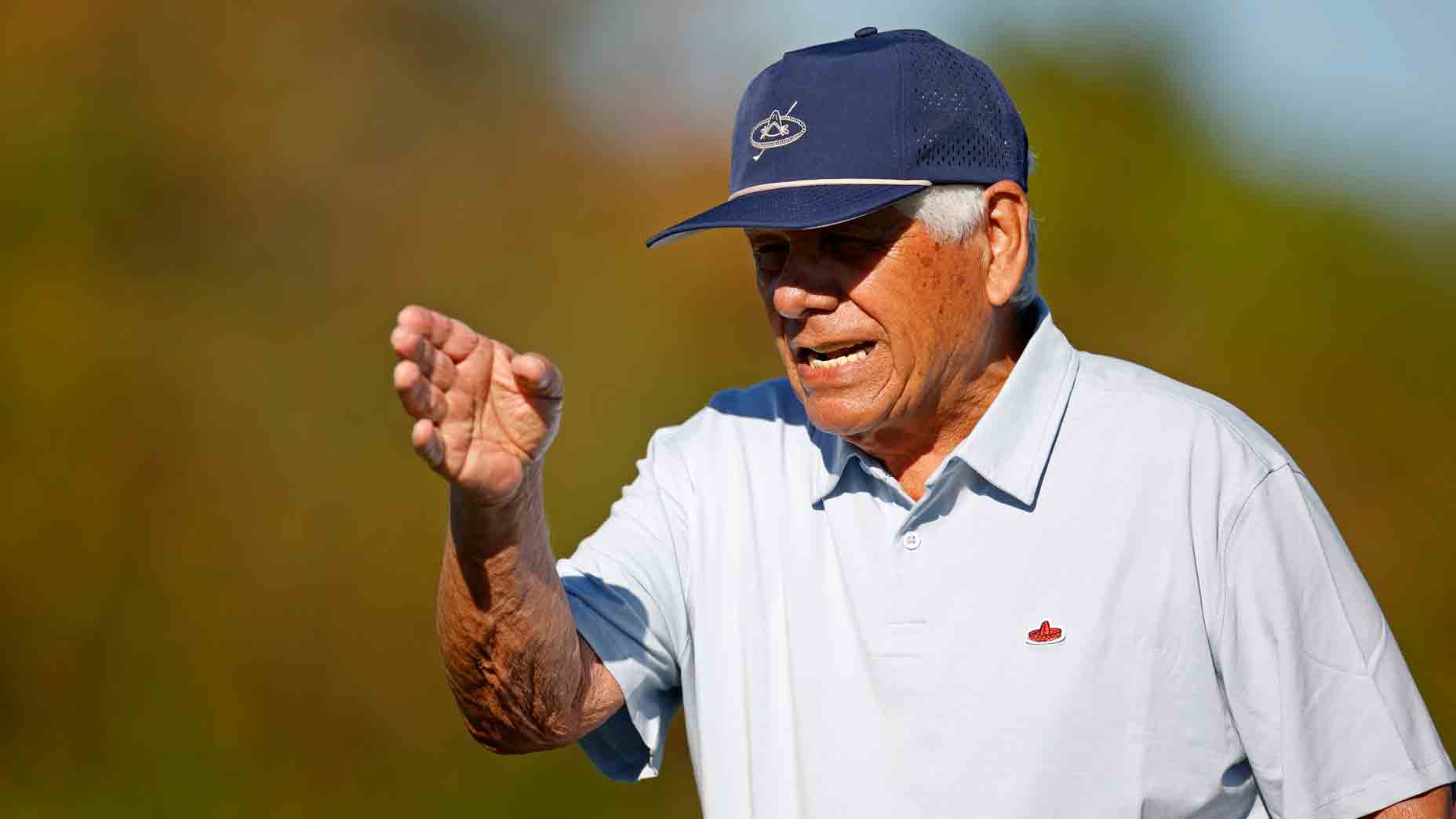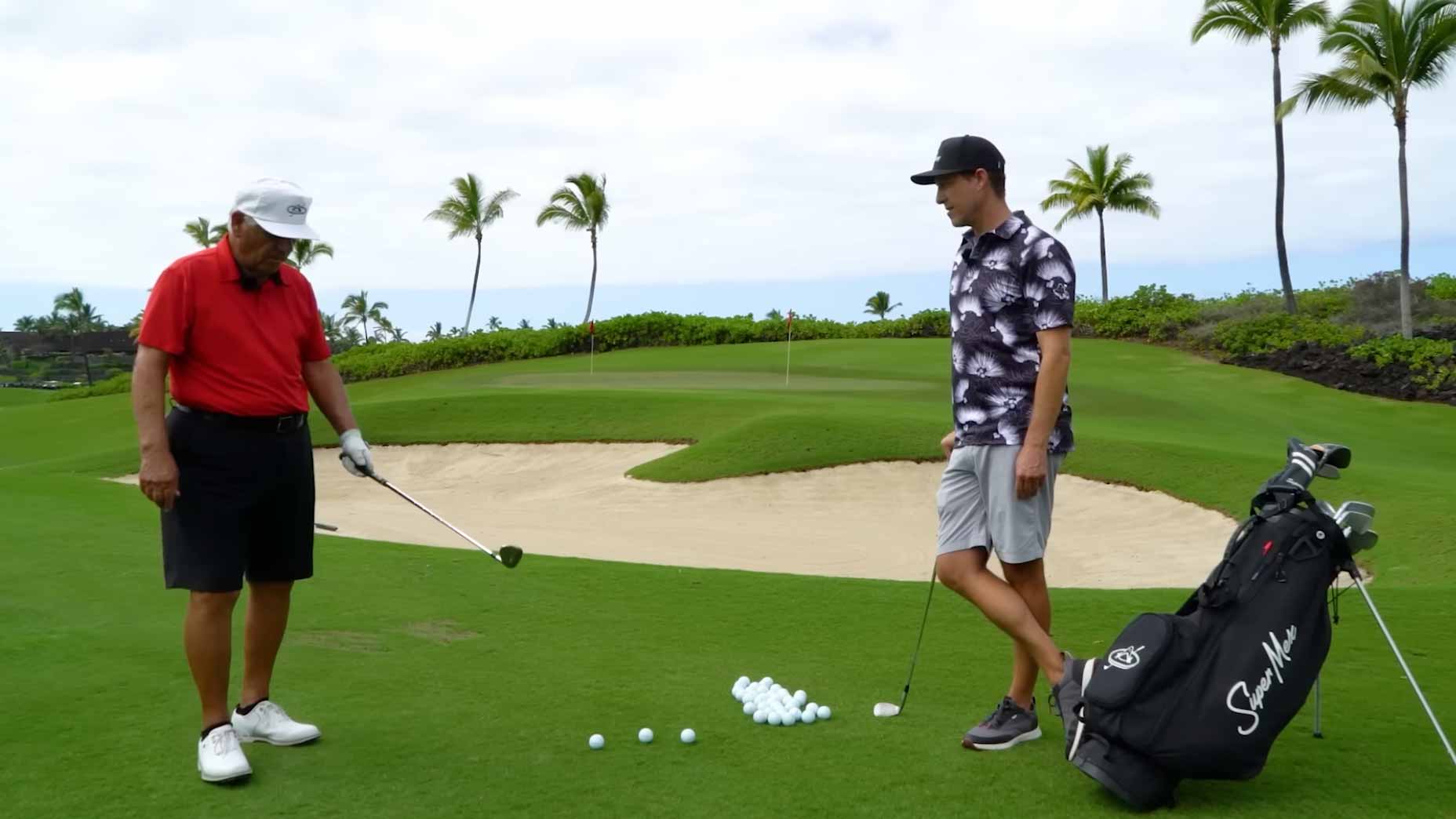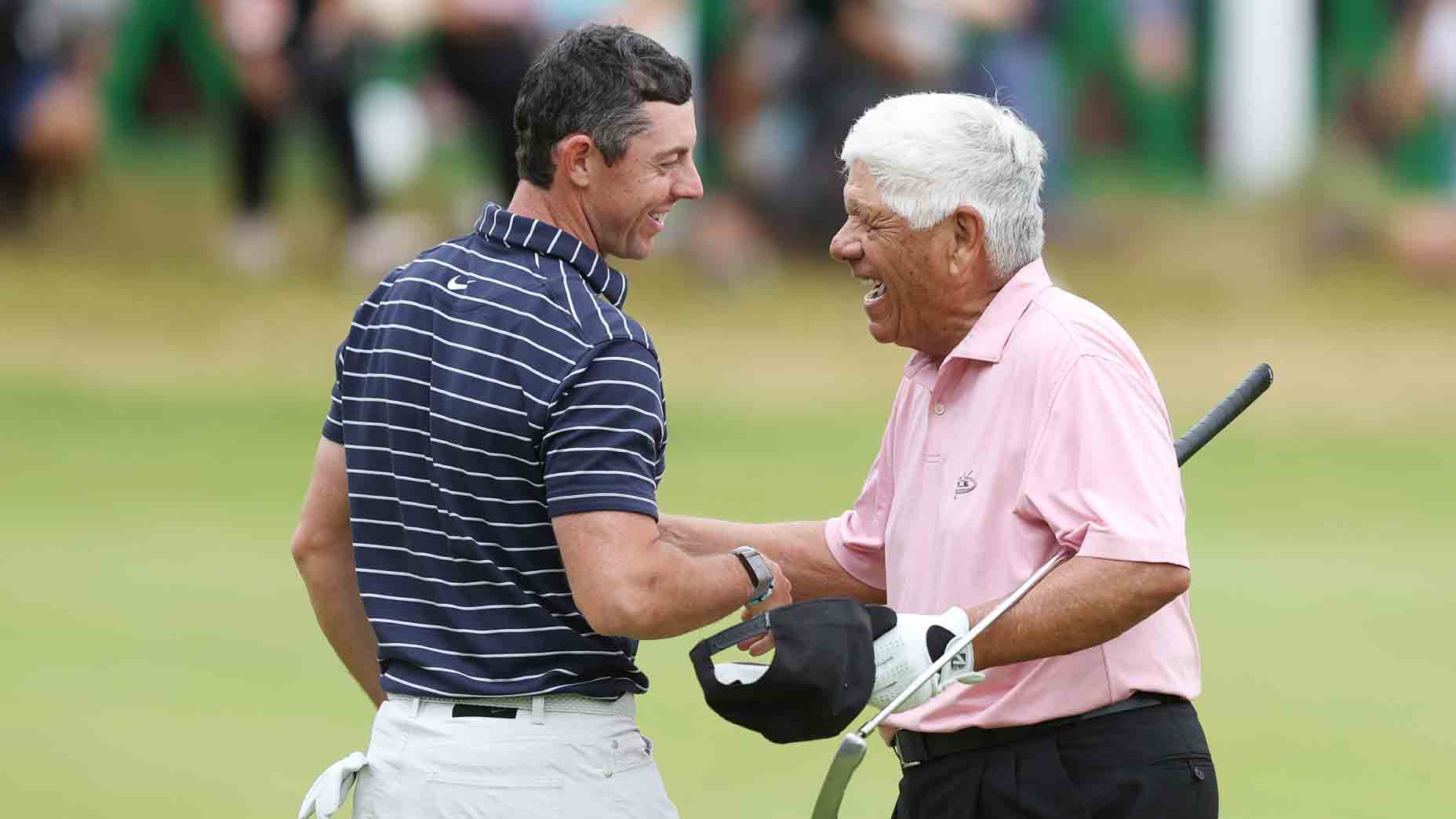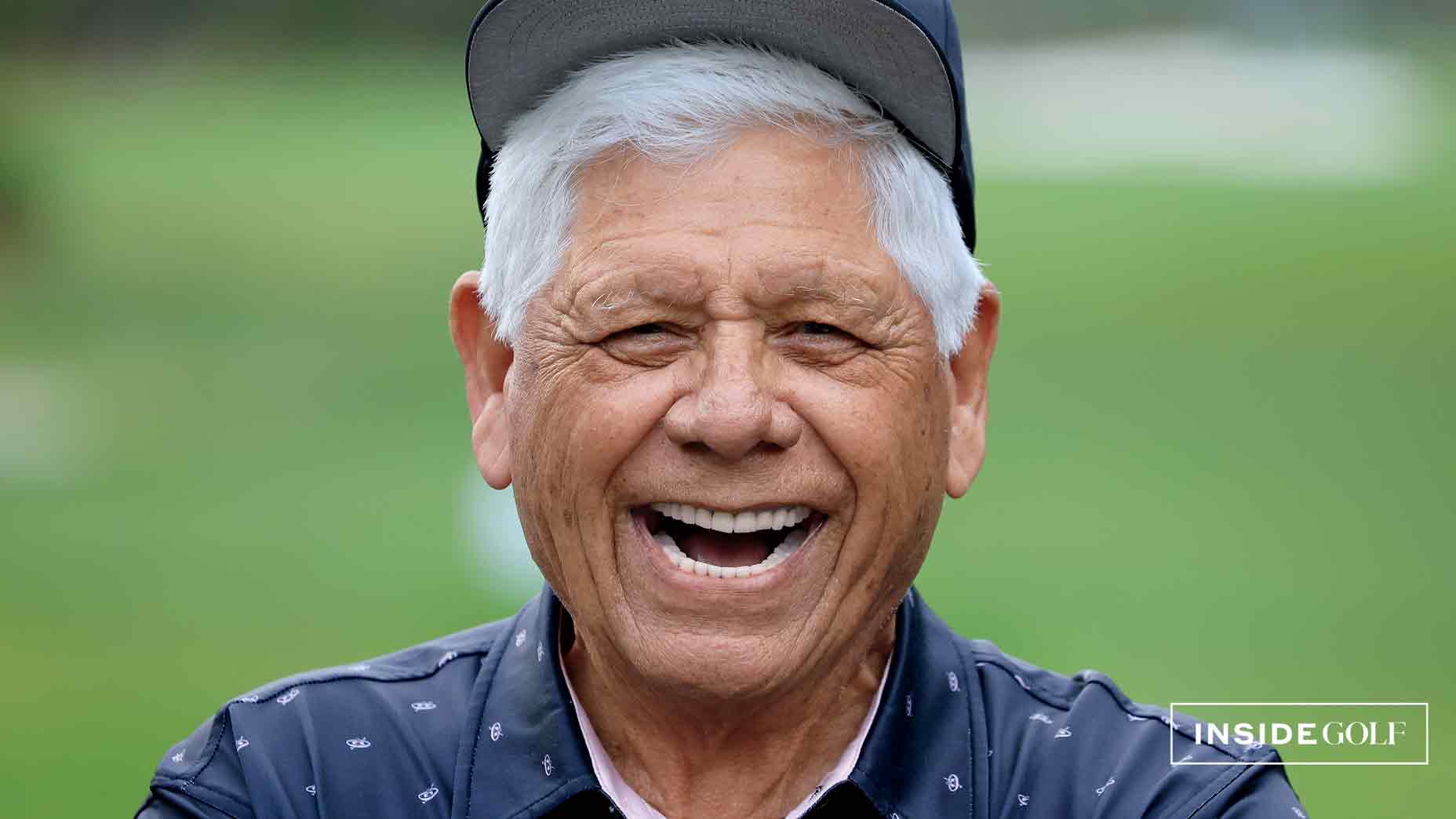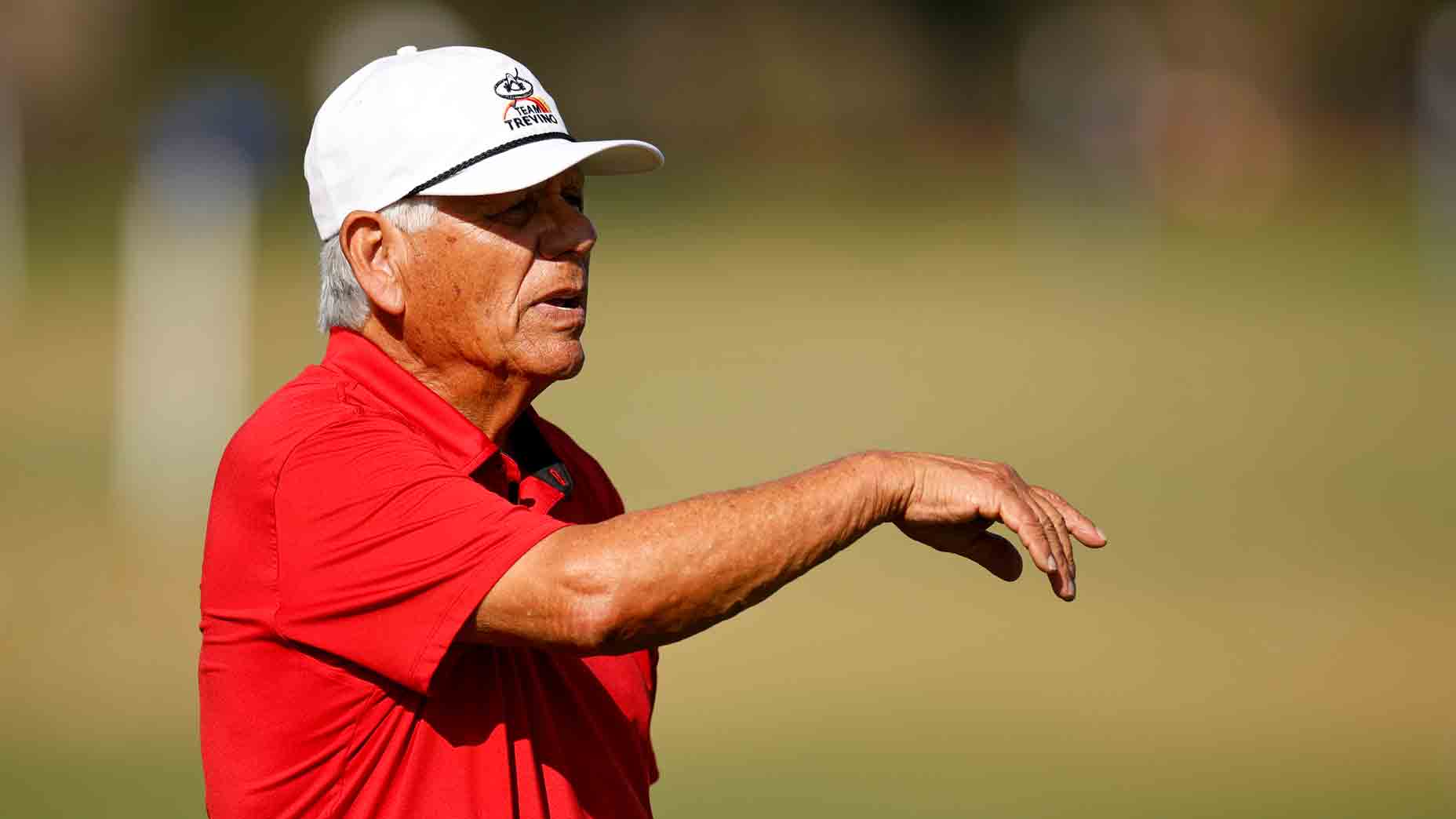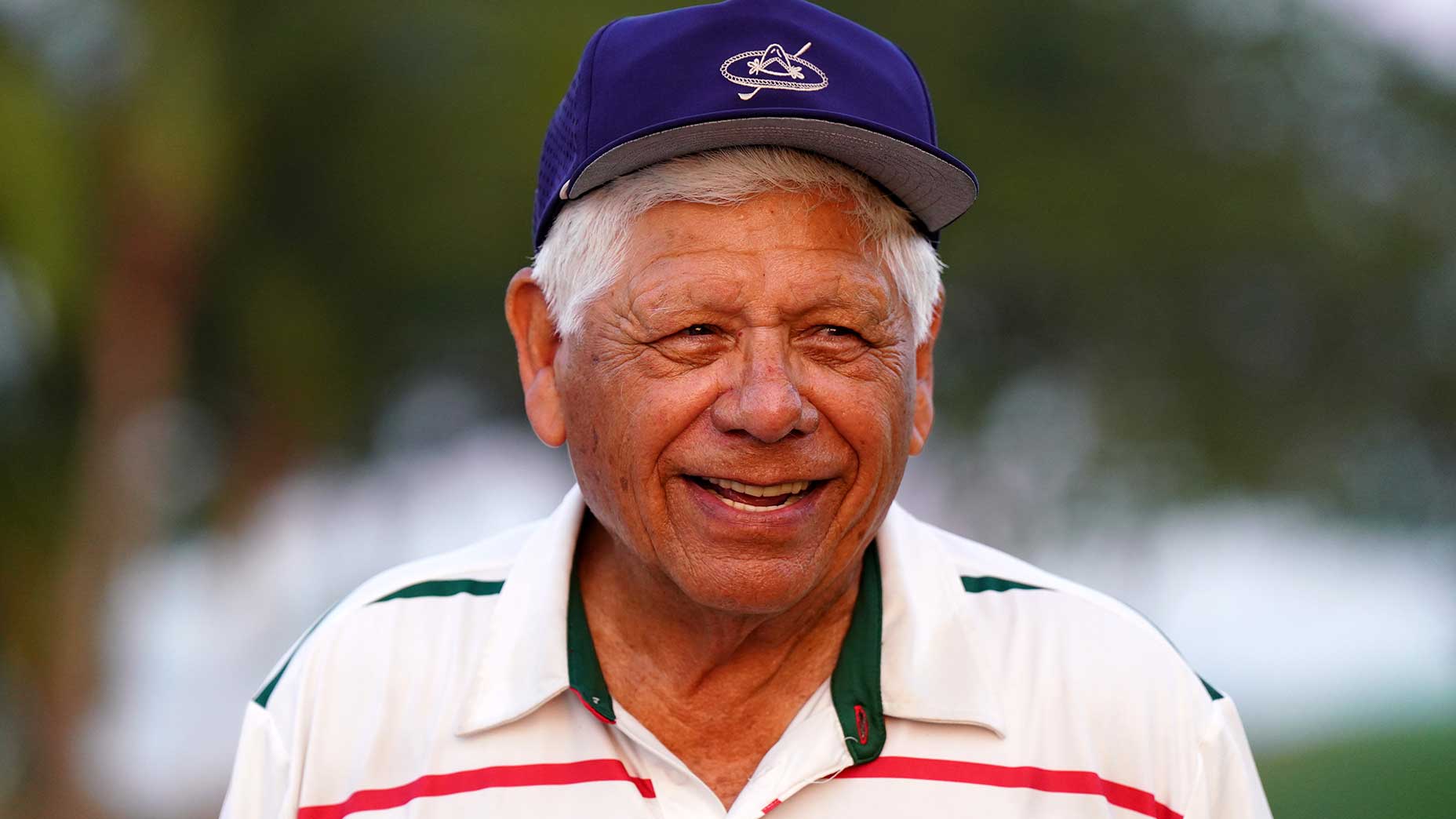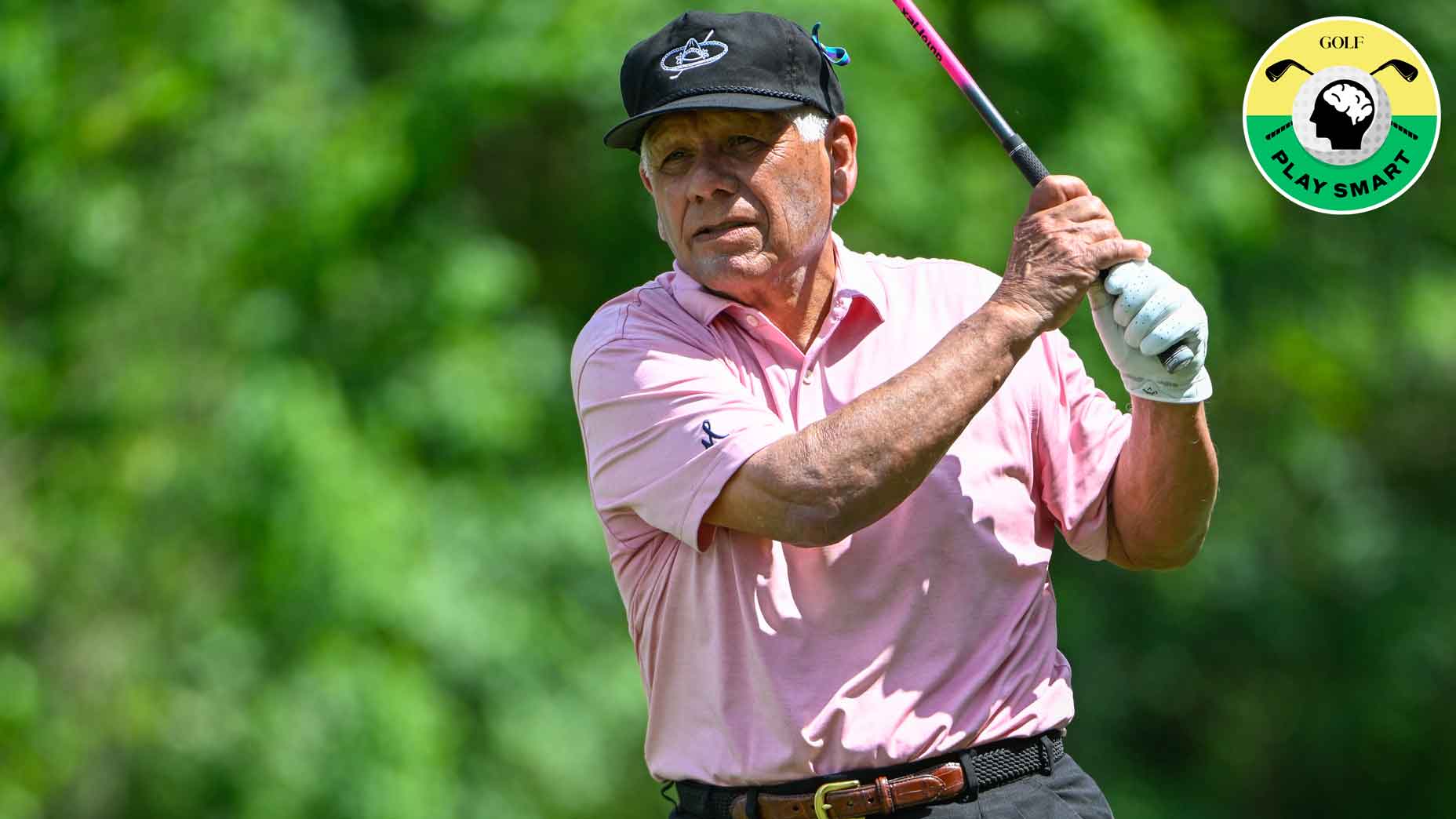Golf instruction is ever-evolving, but the best advice stands the test of time. In GOLF.com’s new series, Timeless Tips, we’re highlighting some of the greatest advice teachers and players have dispensed in the pages of GOLF Magazine. First up, a guide for getting more backspin from Lee Trevino, from the September 1985 issue. For unlimited access to the full GOLF Magazine digital archive, join InsideGOLF today; you’ll enjoy $140 of value for only $39.99/year.
If there’s one thing recreational players want, it’s the ability to produce backspin. When pros stop the ball on a dime on the greens, it elicits oohs and aahs from the gallery rivaled by few other shots. The envy from the grandstands is palpable.
The super backspin shot isn’t just visually pleasing, though. It’s also quite the tool for hitting the ball close. If you can pull the ripcord on a shot with short runway, it opens up all sorts of possibilities. Suddenly, those tucked pins aren’t so daunting anymore.
Pros make these shots look easy — and that’s mainly because they utilize the proper technique. Below is Lee Trevino’s guide for generating backswing from the September 1985 issue of GOLF Magazine.
Lee Trevino’s backspin guide
Every golfer dreams of hitting iron shots that fly high, drop softly and land on the green with “bite.” To do that, you need backspin.
Putting backspin on the ball is an art, but it’s one that even high handicappers can learn. Unfortunately, most golfers make one of two basic mistakes: Either they try to help the ball up, and in doing so top the ball, or they try so hard to take a divot that the blade digs into the ground and the shot is hit fat.
Which doesn’t mean you have to swing as pretty as a pro to put “stop” on the ball. My swing is the perfect example: It may not be textbook, but I get the ball to fall on the green and stay there.
Getting backspin is much easier than you think. All you have to do is position the ball properly in your usual stance and learn two simple swing keys. Then you’ll be hitting with bite.
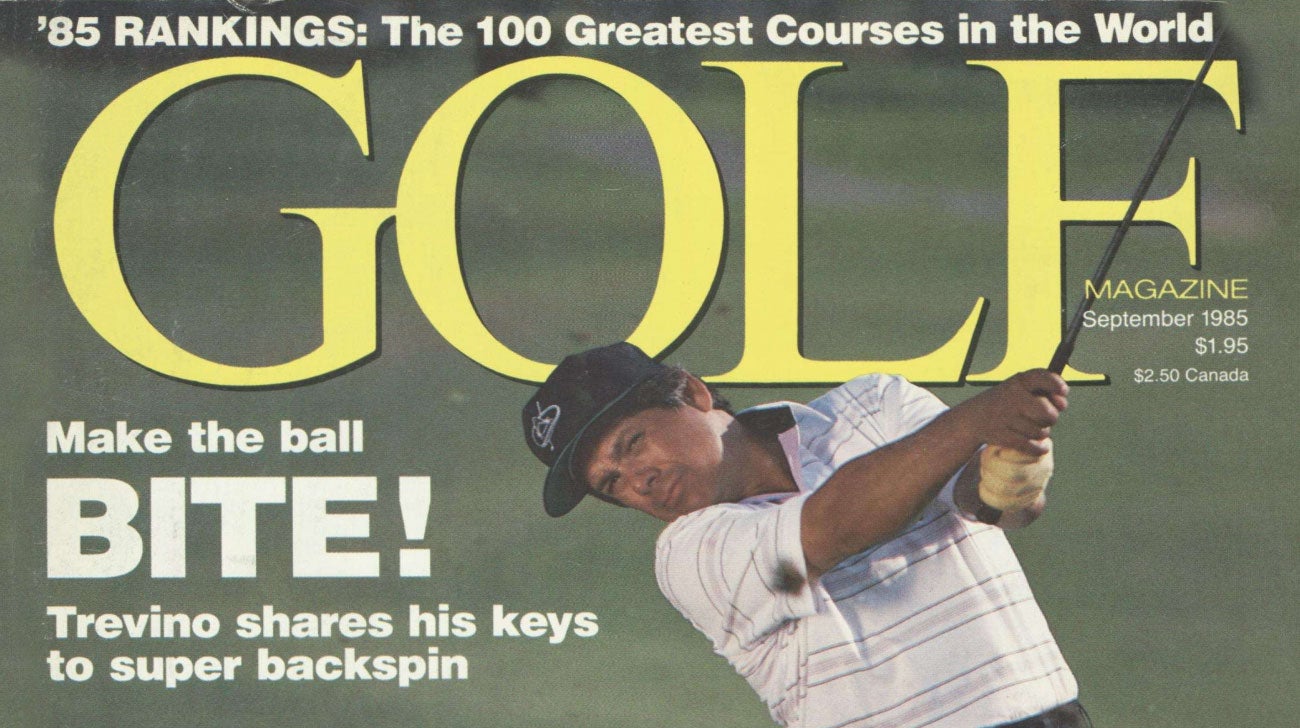
1. Setup
Most golfers make the mistake of playing iron shots off their left heel. This setup encourages you to drag the club low to the ground in the takeaway for a couple of feet before swinging it upward. Playing the ball closer to your right foot shortens the takeaway and promotes a steeper backswing plane — which will create the sharp angle of descent that you want. So, play the ball back in your stance. (Experiment to find just where to place it.) Make a one-piece takeaway using minimal wrist cock.
2. 3/4 backswing
Continue to swing the club back until you feel most of your weight shift to the inside of your right foot. Then, allowing your wrists to cock slightly, swing the club almost straight up with your hands and arms. To prevent getting out of the upright position, swing the club back no farther than the three-quarter point. If you take the club too far back, your wrists overcook and the swing flattens. Then there’s no way to bring the clubbed back down on a steep angle.
3. Downswing trap
Keeping the backswing upright automatically puts you in position to swing the club down on a steep angle. That angle enables you to hit down on the ball, trapping it against the clubface. It’s this action that gives a ball backspin. With the ball played back, you will make contact before the blade squares up to the intended target. The clubface will be a little open at impact, so the ball will fly a little left-to-right. To compensate for this fade action, aim slightly to the left of the target.
For unlimited access to the full GOLF Magazine digital archive, join InsideGOLF today; you’ll enjoy $140 of value for only $39.99/year.
